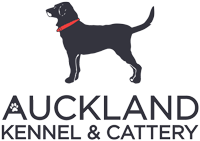Feeding your canine companion
Proper nutrition is essential for the health and well-being of all pets. A balanced, high quality diet can actually increase their life expectancy. Your furry friend probably loves a lot of the same foods you do, and they are happy to eat just about anything you’re willing to share, but is it good nutrition?
Feeding you dog the correct diet involves a basic understanding of diet and nutrition: the nutrients they require, what these nutrients do and how they are obtained. Dogs may love many of the same foods we do, but they are not hairy little humans. Your dog definitely needs protein and good fats, but probably far fewer carbohydrates than you think. Carbs aren’t a natural energy source for dogs. Their bodies can make use of carbohydrates for energy, but they have naturally evolved to get most of their nutrition needs met by fats and protein.
Diet rules for dogs
However, there are no absolute guidelines on what feed your dog, because every pooch is different. Diet and nutrition needs for dogs vary by breed, size, age, and health.
Where many pet owners tend to go wrong when it comes to feeding dogs, is overfeeding them. It’s important to feed the right amount and right kinds of food to keep your canine companion healthy.

Nutrients – what does your dog need?
Dogs require about 40 essential nutrients and there are the six classes of nutrients dogs need for optimum healthy living.
Nutrients are obtained from food. An ingredient in a diet is the raw material that delivers the vital nutrient an animal uses as a source of energy and metabolic machinery. A complete and balanced diet should deliver each nutrient in the right form and in the right amount. Generally speaking, the better the quality of the ingredient selected in a diet, the easier it is for your dog to absorb and use the nutrients.
Nutrients they need
Fats: animal fats and essential fatty acids ensure a healthy skin and coat in our pets. About 9% to15% of an adult dog’s calories should come from fat. Fats are the most concentrated form of food energy, providing your pet with more than twice the energy of proteins or carbohydrates. Fats are essential in the structure of cells, needed for the production of some hormones, and are required for absorption and utilization of certain vitamins. A deficiency of essential fatty acids (such as linoleic acid) may result in reduced growth or increased skin problems.
Proteins: important for growing animals, muscle tone and development and healthy skin and coat. The hair and skin of all mammals is made of up approximately 95% protein and the constant renewal process consumes approximately 30% of the overall daily protein intake. Protein should make up about 18% of your dog’s diet. The quality of dietary protein plays a significant role in maintaining the health, lustre and quality of the skin and coat – an excellent mirror of inner health.
Carbohydrates: a necessary source of energy, vitamins and minerals. Carbohydrates are also an excellent source of fibre to help nourish the good bacteria in the gut, ensure formed healthy stools and in some cases, help with weight management. Carbohydrates are important for reproduction.
Fibre: carbohydrates that alter the bacterial population in the small intestine, which can help manage chronic diarrhoea in dogs. No fibre = diarrhoea – Excessive fibre = soft, large stools.
Vitamins: important for many bodily functions including clotting of blood, vision and mineral metabolism. When feeding your dog a complete and balanced diet, it is unnecessary to give a vitamin supplement unless a specific vitamin deficiency is diagnosed by a veterinarian.
Minerals: necessary for the healthy function of muscles and nerves.
Limiting treats
Treats or table scraps should be given in moderation and represent five per cent or less of your dog’s daily food intake. When using treats as motivation, such as during training exercises, use the smallest pieces you can.
Making sense of pet nutrition
Is your dog getting all the nutrients they need? It can be difficult to ensure your pet’s daily diet and nutrition is right for them. If you’re not sure, your vet can help you optimise your pet’s diet for good health and offer advice on exercise and behaviour modification.
Commercial pet foods are balanced and can be varied by life stage e.g. puppy, adult, senior pet categories to provide higher or lower protein or calcium levels as needed.
What’s the best food for my dog? There’s no such thing as one best brand or type of food that all pets do well on.
Dog Care, Health and Nutrition
We feed balanced, nutritious pet food to our dogs and cats at our boarding kennels. To ask about our animals’ diets call 09 299 7415 or email us with your dog nutrition questions.
Dogs under our care at our boarding kennels and Auckland dog day care are fed Eukanuba and Royal Canin. We are happy to give your pet their own special dog food when provided. Every morning we check the consumption of food and water for close dietary maintenance. We also monitor urinary and bowel motions. We have a 24-hour vet on call, for any eventuality.
